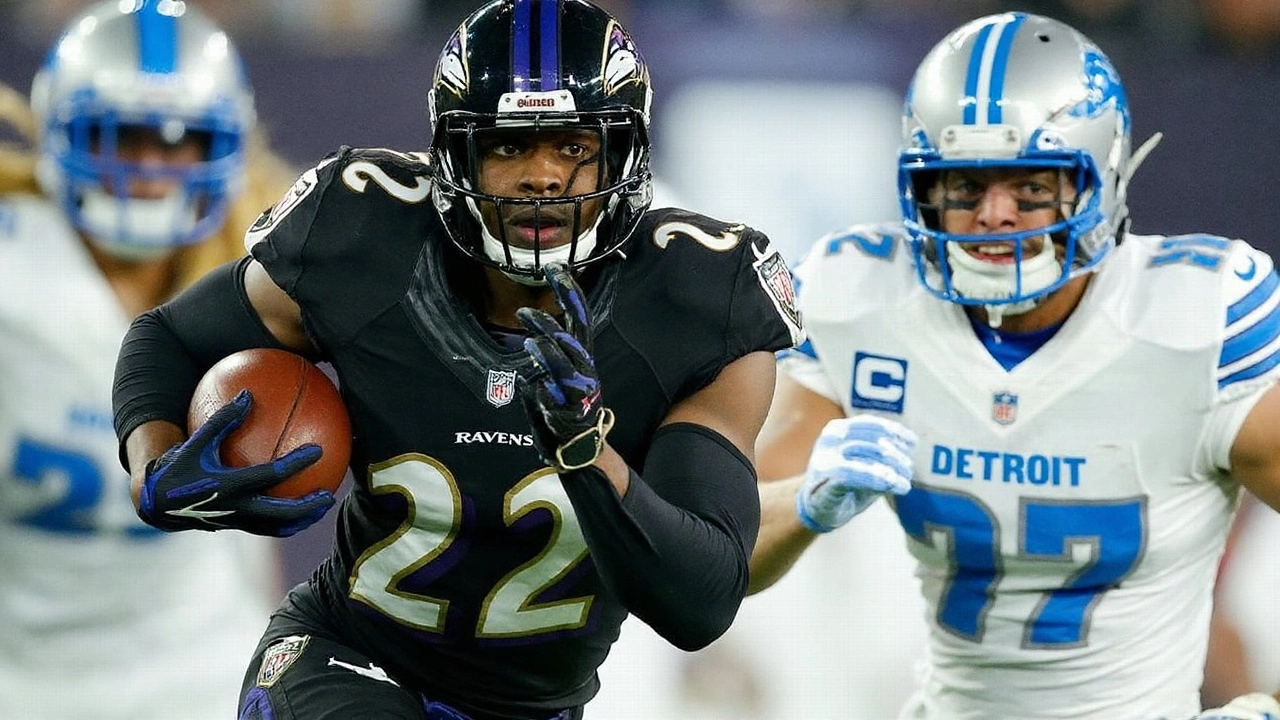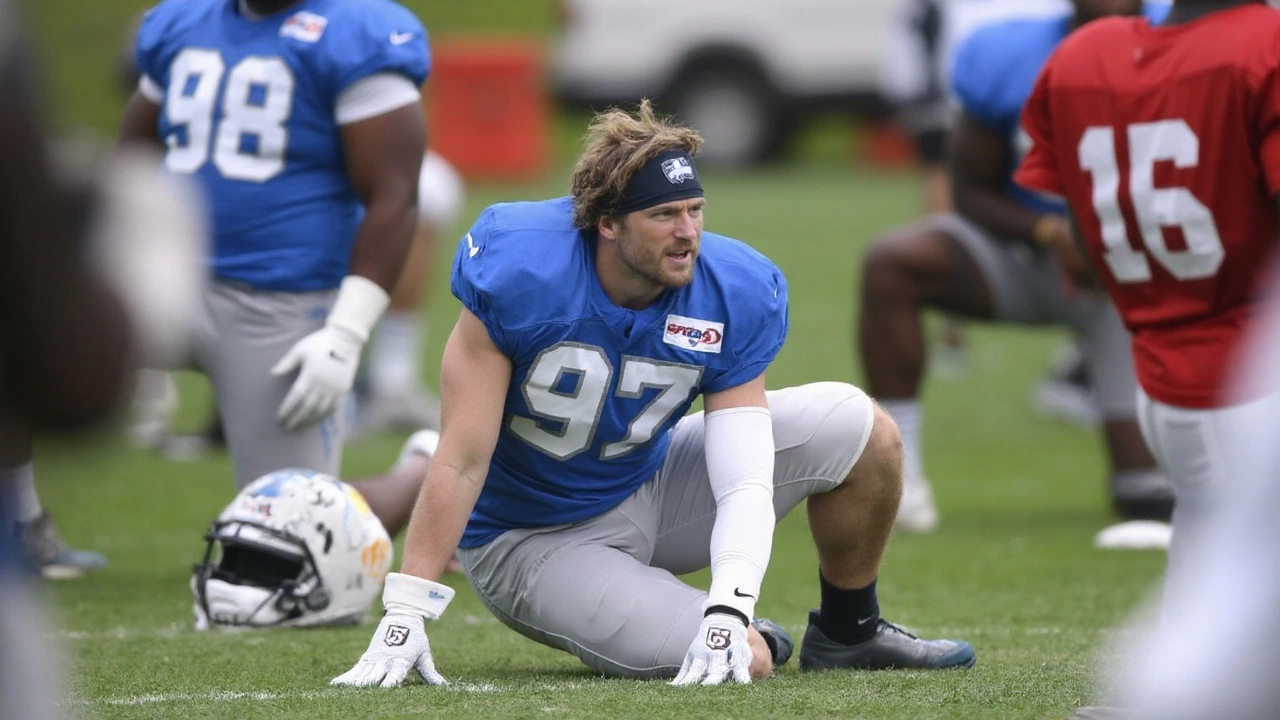Derrick Henry's Uncharacteristic Fumble Streak Plagues Ravens
 Sep, 23 2025
Sep, 23 2025
The Fumble Sequence Against Detroit
On Monday night, the Baltimore Ravens suffered a 38‑30 defeat at the hands of the Detroit Lions, and the play that tipped the balance was a bizarre fumble by Derrick Henry. With just under nine minutes left in the fourth quarter, the Ravens were down by four and needed a spark. After a defensive three‑and‑out, the offense took the field, and Henry took a handoff on the very first snap, cutting left as the crowd expected a ground‑and‑ pound gain.
Detroit’s defensive end Aidan Hutchinson, who had been tracking quarterback Lamar Jackson, broke away from the edge and slammed into Henry from behind. The contact stripped the ball cleanly, and Lions cornerback D.J. Reed scooped it up, preserving the lead and later extending it. The turnover proved costly: the Lions never looked back, and the Ravens’ comeback hopes evaporated.
The incident echoed two previous missteps. In Week 1, Henry’s fumble against the Buffalo Bills contributed to a dramatic fourth‑quarter rally by the opposition, while a Week 2 mishap was recovered by Baltimore but still highlighted a growing trend. This marked the first time in Henry’s eight‑year career that he has fumbled in three consecutive games.
Post‑game, an understandably frustrated Henry addressed the media: “I’m at a loss for words. I apologize to Flock Nation. It’s not a good feeling. I’m going to keep working to get it fixed.” The veteran’s words were sincere, and his body language—slamming his helmet and collapsing onto the bench—spoke volumes about his disappointment.

Implications for Baltimore’s Season
Beyond the turnover, Henry’s overall performance has been underwhelming. He finished with just 50 rushing yards on 12 carries, his only score coming in the first quarter. This mirrors the previous game, making it the first back‑to‑back stretch of 50‑yard or less rushing outputs since the tail end of the 2023 season (Weeks 14‑15).
Those numbers are alarming for a player who has averaged 1,000+ yards per season in five of his seven NFL years and who has been a four‑time All‑Pro. Historically, Henry has been a ball‑security exemplar, losing only 11 fumbles over 1,500+ touches prior to this slump. Analysts are now questioning whether an injury, a lingering ankle issue, or a scheme change is affecting his grip and vision.
From a coaching perspective, head coach John Harbaugh and offensive coordinator Greg Roman have hinted at adjustments. In the press conference after the loss, Harbaugh said the staff will “review every snap” and that “we’ll work on protecting the football as much as we work on gaining yards.” Roman added that practice reps will now include drills focused on high‑impact tackles and ball‑security under duress.
Looking ahead, the Ravens face another 1‑2 team, the Kansas City Chiefs, in Week 4. The Chiefs’ defense has already shown an ability to force turnovers, so any lingering ball‑security issues could prove disastrous. On the flip side, a successful correction could restore Henry’s confidence and rekindle Baltimore’s rushing attack, which has been a cornerstone of their offensive identity.
Fans and commentators are also speculating on potential roster moves. Some suggest giving more snaps to backup Justice Hill, who saw increased carries after Henry’s mishap, while others argue that benching Henry would be premature given his career pedigree. The consensus leans toward a balanced approach: keep Henry in the mix, but limit high‑risk plays until his confidence rebounds.
In the broader scope of the NFL, Henry’s streak is a stark reminder that even elite athletes can encounter sudden, inexplicable slumps. Whether the cause is a subtle hand‑position flaw, a psychological hurdle after the first fumble, or an adjustment by opposing defenses, the next few weeks will be crucial. If the Ravens can tighten up the ball‑security lesson and reignite Henry’s legendary power‑running, they still have a season‑long opportunity to climb out of the early hole.